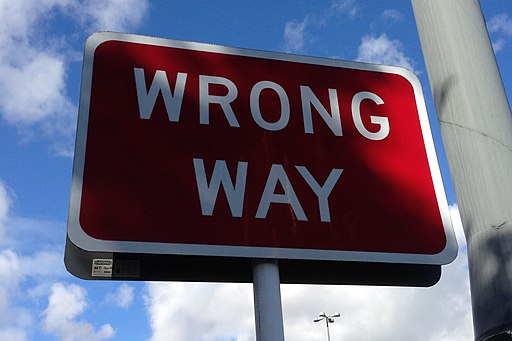 I didn't think that the U.S. would elect a Black president during my lifetime. We did. I didn't think that same-sex marriage would be legal in the state of Mississippi during my lifetime. It is. I didn't think that a secular Jew who proudly calls himself a "democratic socialist" would create an important political movement and give the Democratic candidate anointed by the mainstream political news media some real competition. He has. And I did not expect to see a meaningful decline in religiosity during my lifetime. Evidence of just such a phenomenon has been provided across polls taken over several years. I've been wrong about plenty of things, and I hope to be wrong about many more.
I didn't think that the U.S. would elect a Black president during my lifetime. We did. I didn't think that same-sex marriage would be legal in the state of Mississippi during my lifetime. It is. I didn't think that a secular Jew who proudly calls himself a "democratic socialist" would create an important political movement and give the Democratic candidate anointed by the mainstream political news media some real competition. He has. And I did not expect to see a meaningful decline in religiosity during my lifetime. Evidence of just such a phenomenon has been provided across polls taken over several years. I've been wrong about plenty of things, and I hope to be wrong about many more.Some of the things I hope to be wrong about are quite minor, even trivial. I hope I'm wrong about the slim chances of marijuana being legalized throughout the U.S. I hope I'm wrong about the self-driving cars of the future ruining the joy of driving for those of us who find pleasure in driving. I recognize that things like this do not matter much to many people; they are not particularly high on my list of priorities either.
There are also less trivial things about which I hope to be wrong. Examples include my belief that the conflict between the West and Islam is going to get much worse (and much bloodier) before it gets any better, my concern that cultural forces we do not understand particularly well are reducing the likelihood that we will be able to engage in civil discourse with one another, my fear that Christian extremists are not remotely close to giving up on their quest for power or their desire to impose their beliefs on the rest of us, and my suspicion that we have only just began to experience the adverse effects of dumbing down our educational system, eradicating the free expression of ideas from our universities, and elevating feelings above facts. There are too many others to list.
When I am wrong, it is often because circumstances turn out to be better than what I predict. You see, I've always been a pessimist. There are exceptions, but pessimism has been my default as long as I can remember. It works for me, for the most part, by preventing extreme disappointment (i.e., I rarely get my hopes up only to have them dashed).
But my pessimism is not only about preventing disappointment; I find that it also leads to great joy when I turn out to be wrong in the direction of underestimating others. I love to be surprised by great things of which humanity is capable even if I tend to expect something else most of the time. And so, in those fleeting moments when the greatness of humanity shines through, I find cause for celebration and joy in being wrong.